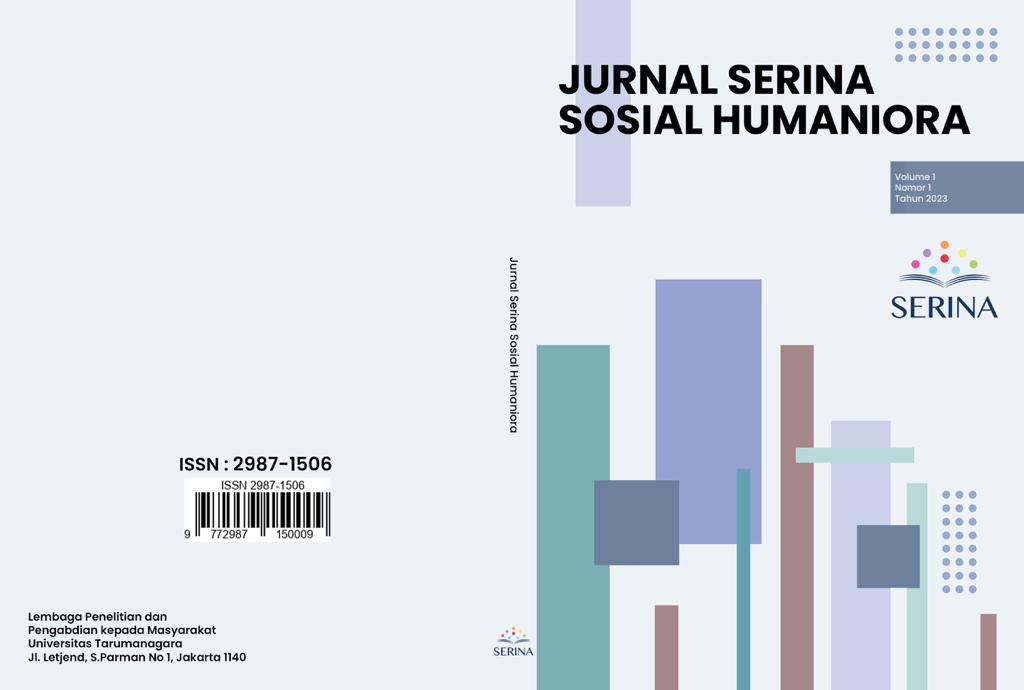DAMPAK TIDAK DIUBAHNYA UU CIPTA KERJA SETELAH DINYATAKAN INKONSTITUSIONAL BERSYARAT OLEH MK
Main Article Content
Abstract
Indonesia, which until now is still suffering from hyperregulation, has received relief with the issuance of Law Number 11 of 2020 concerning Job Creation. The Omnibus Law can allow the government to change 79 laws into just 1 law. However, after the birth of the Job Creation Law, it caused a lot of rejection from various parties because the Job Creation Law was considered to be detrimental to the political economy ecosystem in Indonesia, especially in the fields of employment, natural resource management (SDA), and the environment. The Job Creation Law itself is one of the regulations that were made very quickly and was formed by this country. The Job Creation Law is also referred to as legislation without democratic space due to the lack of an open dialogue process in general. Finally, on November 25, 2021, the Constitutional Court decided that Law Number 11 of 2021 concerning Job Creation was declared conditionally unconstitutional and considered formally and procedurally flawed. However, behind the polemic that emerged in the Job Creation Law, there were advantages for foreign investors, entrepreneurs, and MSMEs.
Indonesia yang hingga saat ini masih didera regulasi berlebihan (hyper regulation) mendapatkan kelegaan dengan terbitnya Undang-Undang Nomor 11 Tahun 2020 Tentang Cipta Kerja. Omnibus Law sendiri dapat memungkinkan pemerintah untuk mengubah 79 Undang-Undang menjadi 1 Undang-Undang saja. Namun setelah lahirnya UU Cipta Kerja tersebut menimbulkan banyak penolakan dari berbagai pihak karena UU Cipta kerja ini dianggap dapat merugikan ekosistem ekonomi politik di Indonesia terutama di bidang ketenagakerjaan,tata kelola sumber daya alam(SDA)dan lingkungan hidup.UU Cipta Kerja sendiri merupakan salah satu peraturan yang dibuat sangat cepat dibentuk oleh Negara ini,UU Cipta Kerja juga disebut sebagai legislasi tanpa ruang demokrasi dikarenakan minimnya proses dialog terbuka secara umum. Hingga akhirnya pada tanggal 25 November 2021 MK memutuskan UU Nomor 11 Tahun 2021 tentang Cipta Kerja dinyatakan Inkonstitusional bersyarat dan dianggap telah cacat secara formil dan prosedur. Namun dibalik polemik yang muncul dalam UU Cipta Kerja terdapat juga keuntungan bagi para investor asing,pengusaha dan UMKM.
Article Details
References
Asrun, A. M. (2015). Keadilan substantif dari mahkamah konstitusi. Perhimpunan Pusat Studi Hukum Publik Jakarta.
Andika, R. (2022, Juni 13). Putusan MK serta dampak positif dan negatif dari UU cipta kerja. Kompasiana. https://www.kompasiana.com/ryanandika0960/62a66a68bb448642b27eca03/putusan-mkserta-dampak-positif-dan-negatif-dari-uu-cipta-kerja.
Lembaga Pengembangan Jasa Konstruksi (2021, Desember 10). UU cipta kerja dinyatakan inkonstitusional bersyarat, pemerintah segera tindak lanjuti putusan MK. LPJK. https://lpjk.pu.go.id/uu-cipta-kerja-dinyatakan-inkonstitusional-bersyaratpemerintah-segera-tindak-lanjuti-putusan-mk/
PUTUSAN Nomor 91/PUU-XVIII/2020
Thea DA, A. (2021, Juni 8). Sejumlah Catatan Negatif Terkait UU Cipta Kerja. Hukum Online. https://www.hukumonline.com/berita/a/sejumlah-catatan-negatif-terkait-uu-ciptakerja-lt60bf37f248a66
Undang-Undang Nomor 11 Tahun 2020 tentang Cipta Kerja
Undang Undang Nomor 11 Tahun 2020 tentang Cipta Kerja Inkonstitusional Bersyarat



